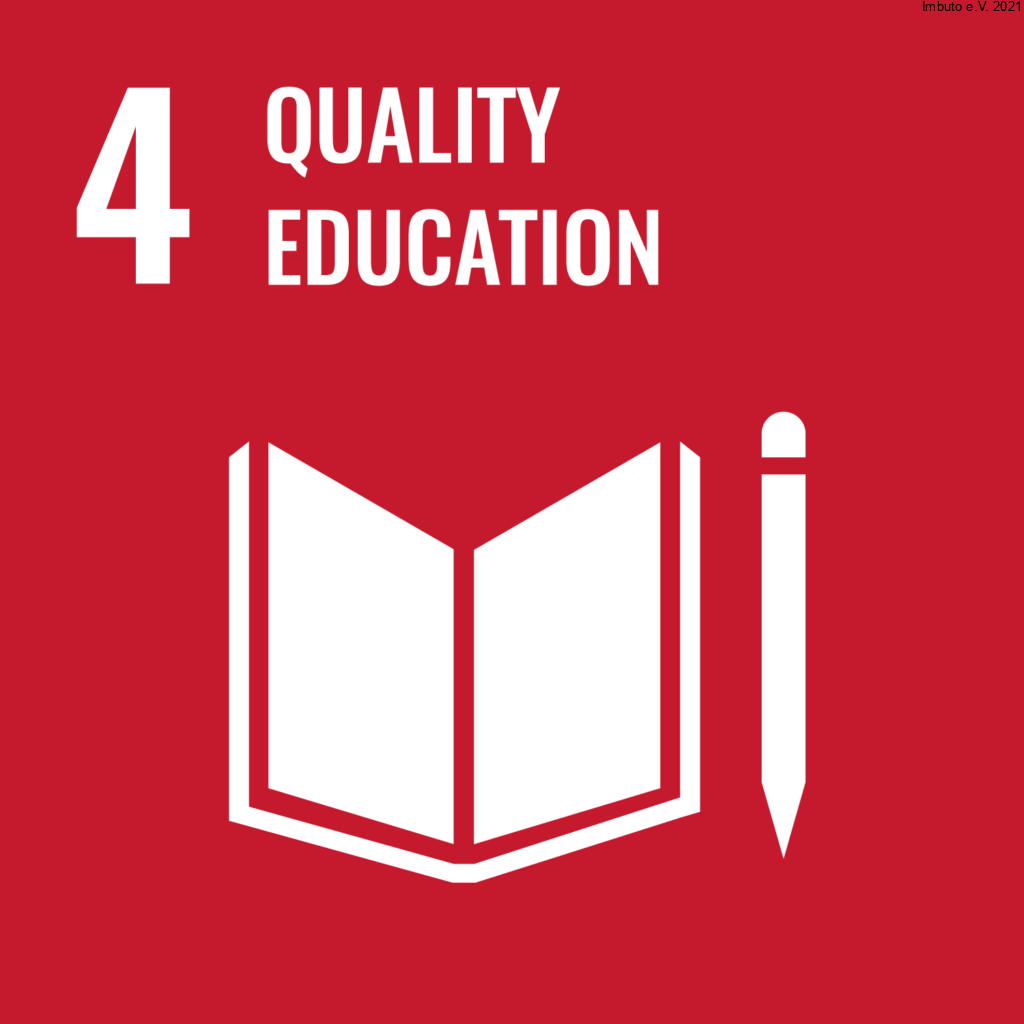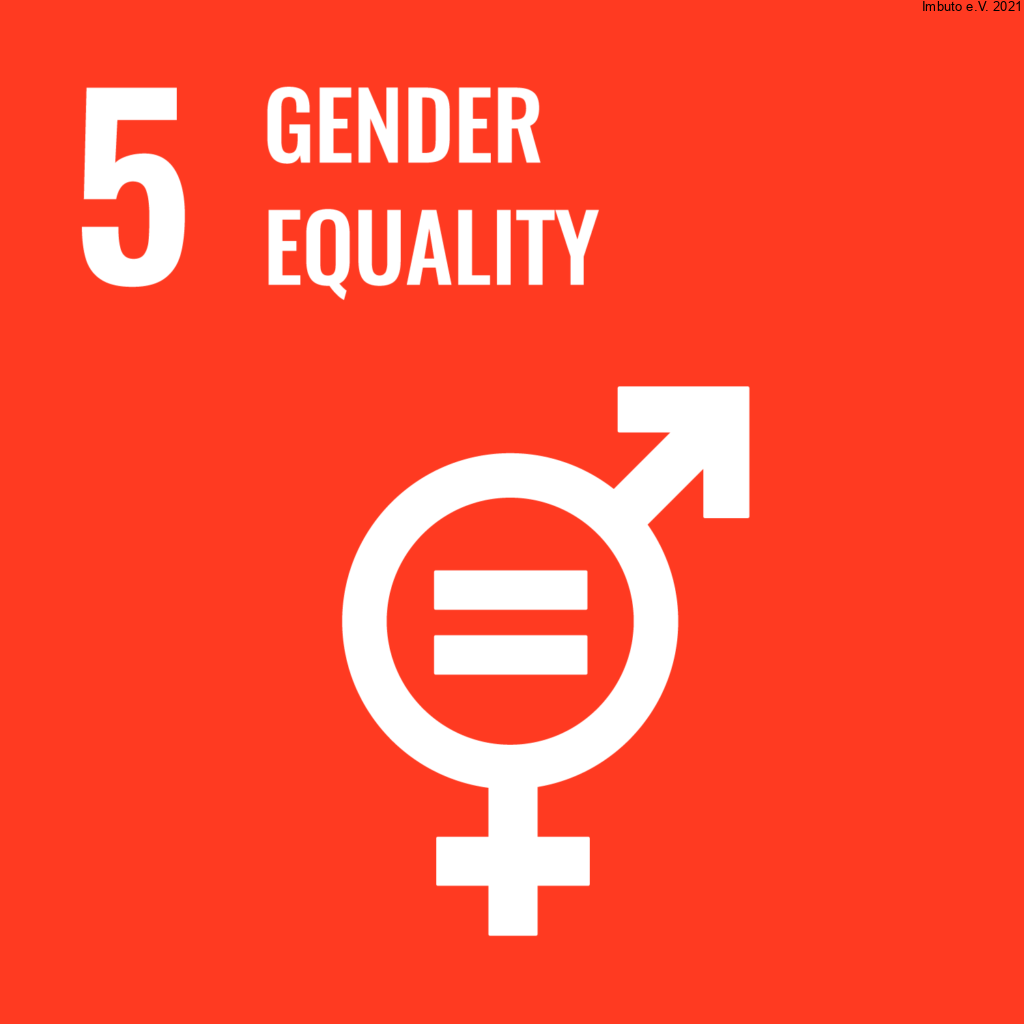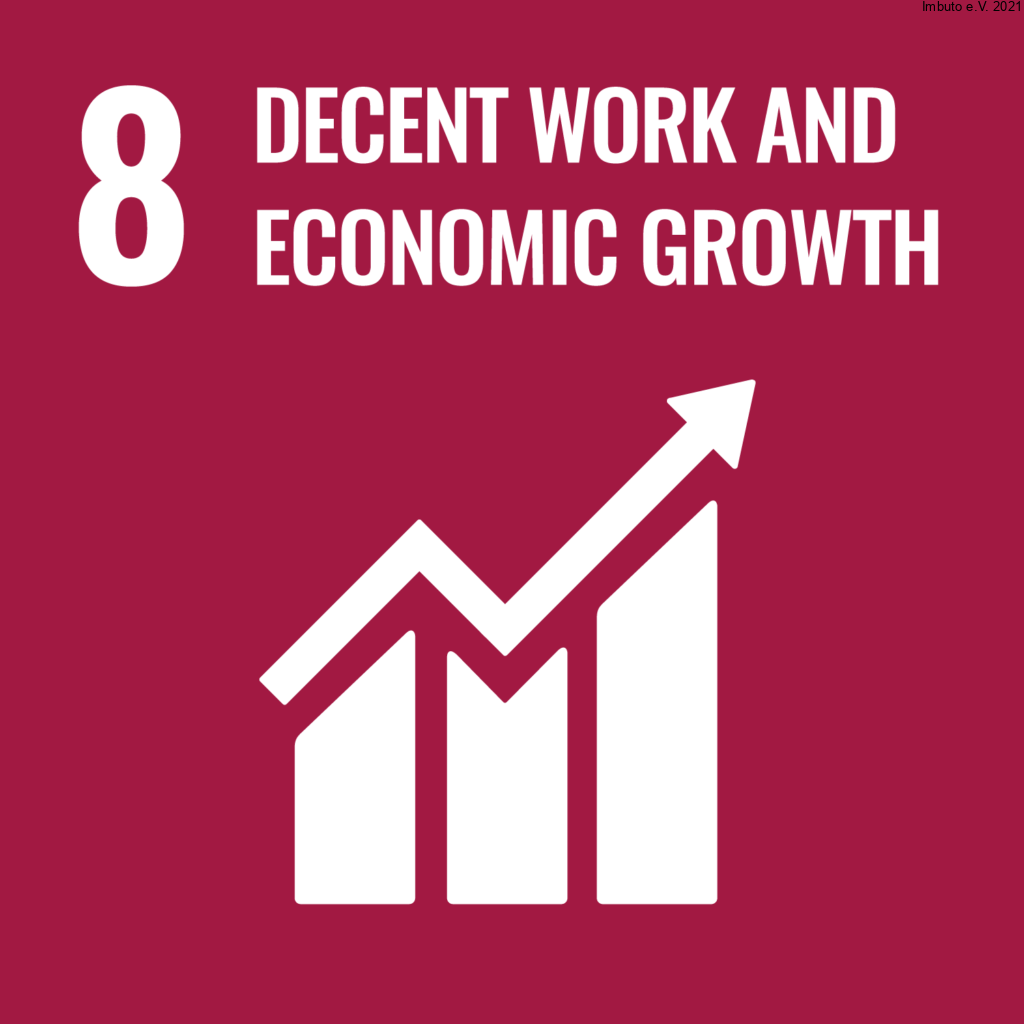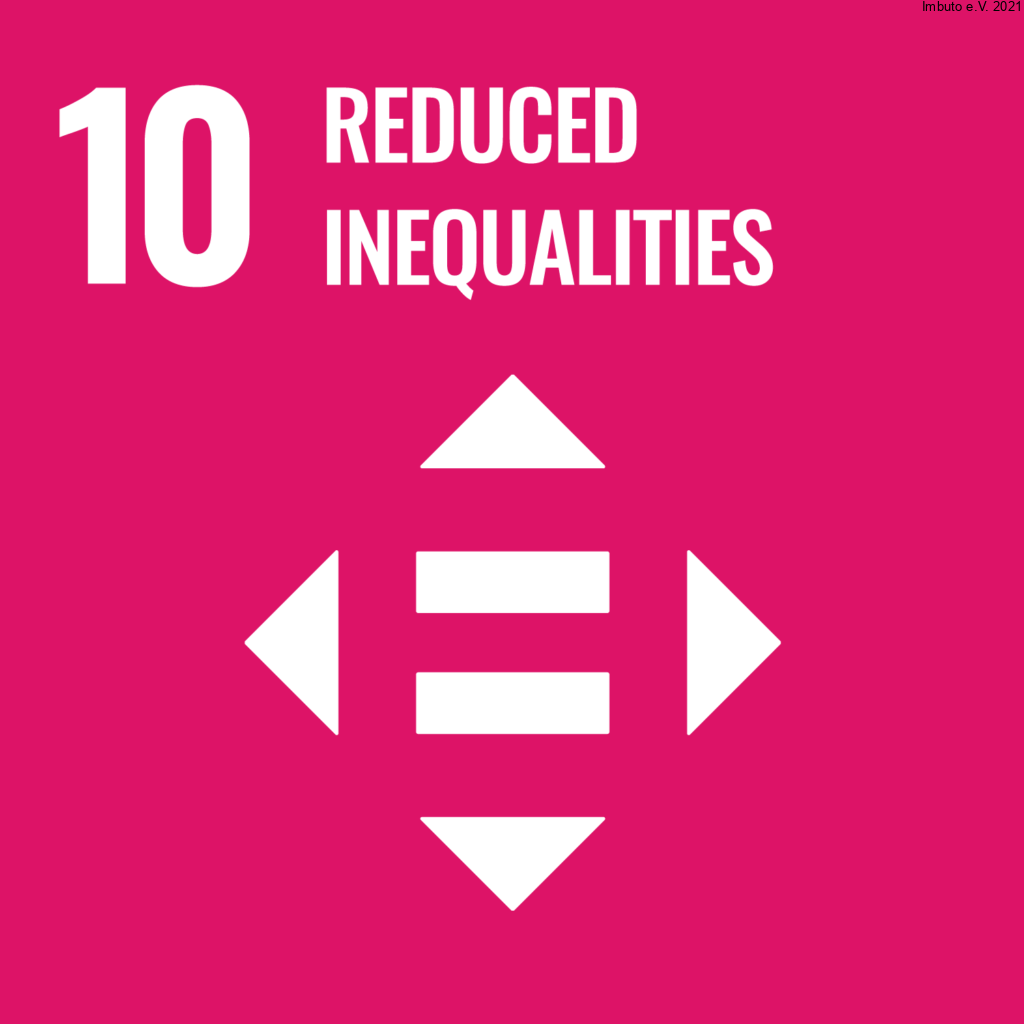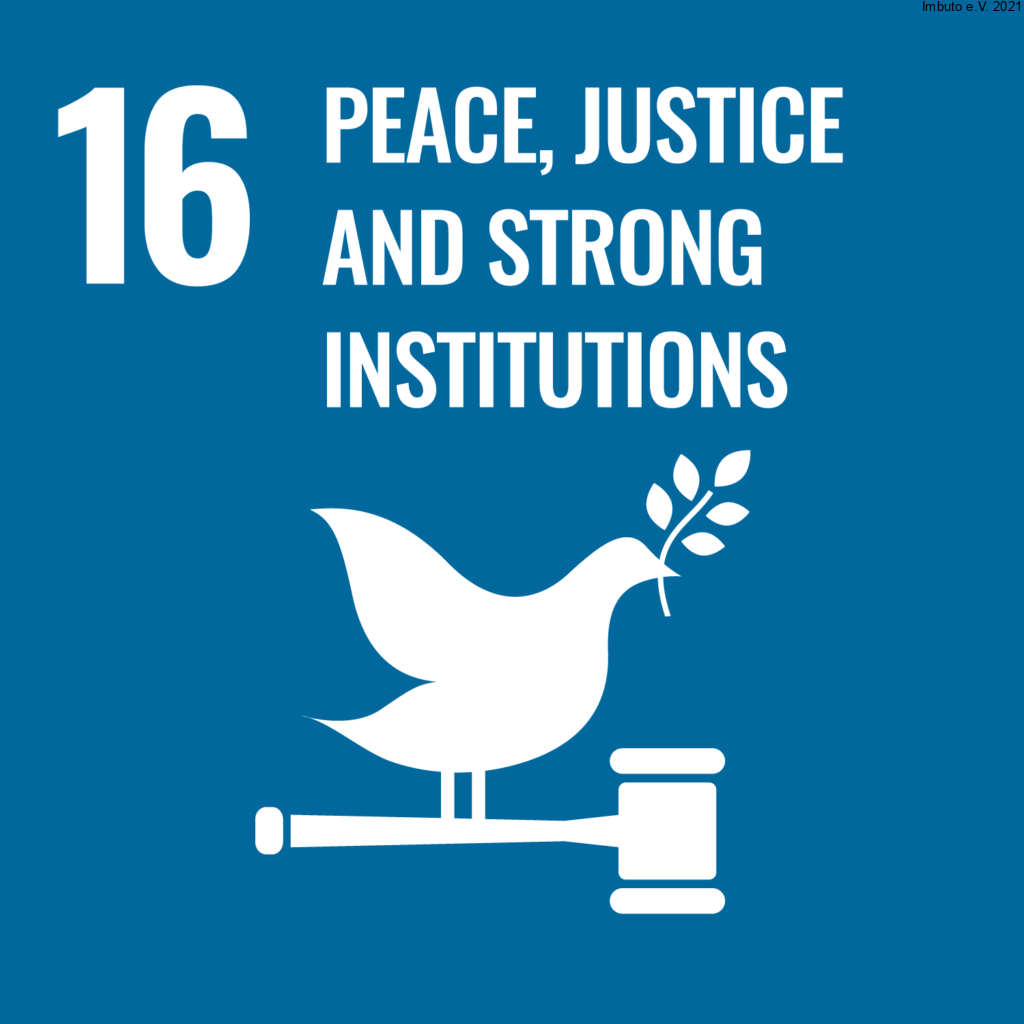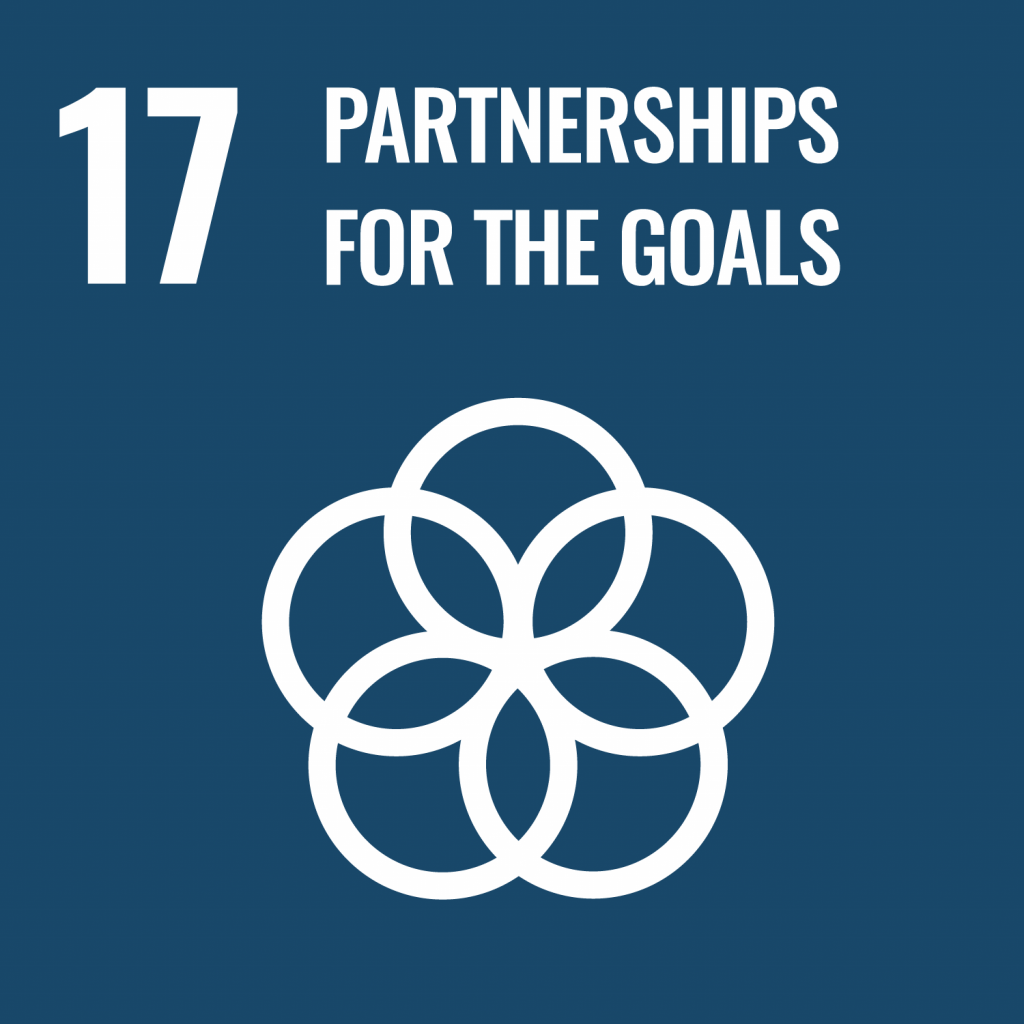What does Imbuto mean?
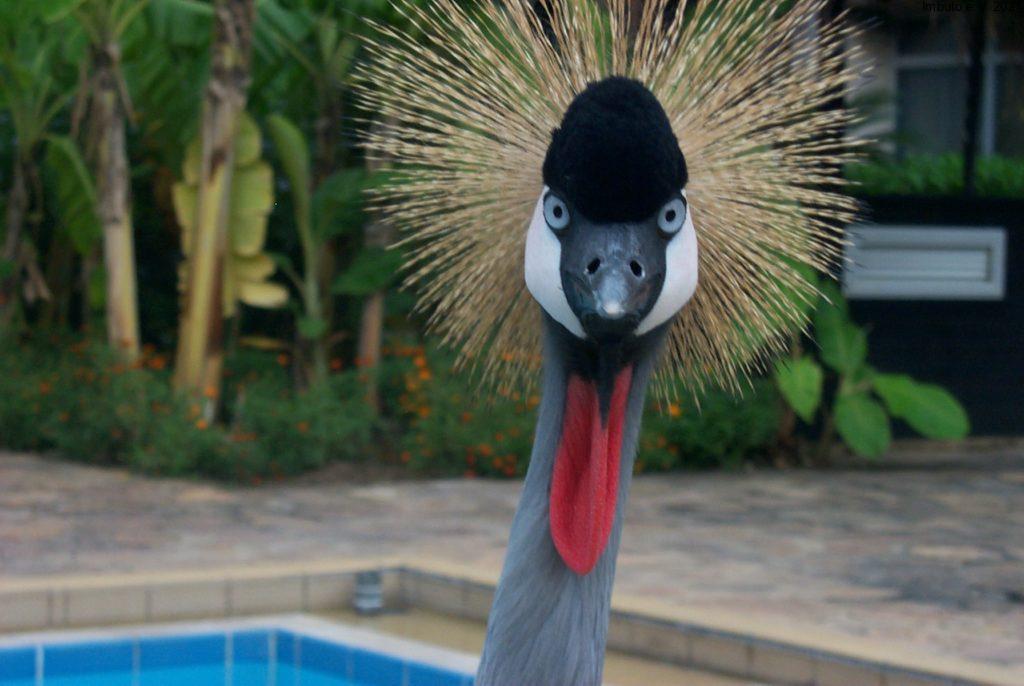
Imbuto is a term borrowed from the national languages of Burundi and Rwanda in East Africa (Kinyarwanda, Kirundi). Imbuto means selected seed, seed grain or fruit, thus something that is sown and bears fruit. Symbolically, we put grains into the earth and water them so that they can bear ripe fruit. In the Rwandan national language, the word Imbuto has a very positive connotation, something our association tries to live up to every day. For 20 years, many Imbuto have been sown, have grown and continue to bear good fruit.
Who are we?
Imbuto was founded in 2001 and is a human rights organization that contributes to a culture of peace. In 2021, we celebrate our 20th anniversary! Our activities are carried out on a non-partisan and interdenominational level.
Board members of Imbuto
1st Chairperson: Sang-Min Park, Fronhausen
2nd Chairperson: Hildegard Schürings, Fronhausen
Treasurer: Susanne Steuber, Frankenberg
Managing director: Hildegard Schürings, Fronhausen
Contact: imbuto(a)imbuto.net
What motivates us?
Based on our own history, we are committed above all to supporting people who have fled. People usually leave their homes for vital reasons: war, genocide, terror, persecution, insufficient livelihoods, economic crisis, dramatic climate change. This is intensified by increasing land purchases by private investors (landgrabbing). As a result, countless people lose their farmland, their jobs, their income and thus their security of supplies.
Through educational offers, Imbuto informs about the living conditions and challenges in countries of the Global South.
The world requires new thinking, new actions and further development of a global domestic policy. This cannot be governed solely by countries of the Global North, but rather jointly by all countries. This requires exchanging information and facilitating a change of perspective, which we hope to contribute to with our work. We want to move the world!
Our objectives
We are committed to peace, more justice in the world and equal rights for all people in the world! Imbuto promotes dialog and exchange between citizens of the Southern and the Northern hemisphere. We support the peaceful social coexistence of people with different cultural backgrounds.
All people, regardless of where their born, have the same rights and duties, as agreed upon in the United Nations Declaration of Human Rights. We contribute to the protection of these rights, the preservation of human dignity as well as to the realization of childrens’ rights.
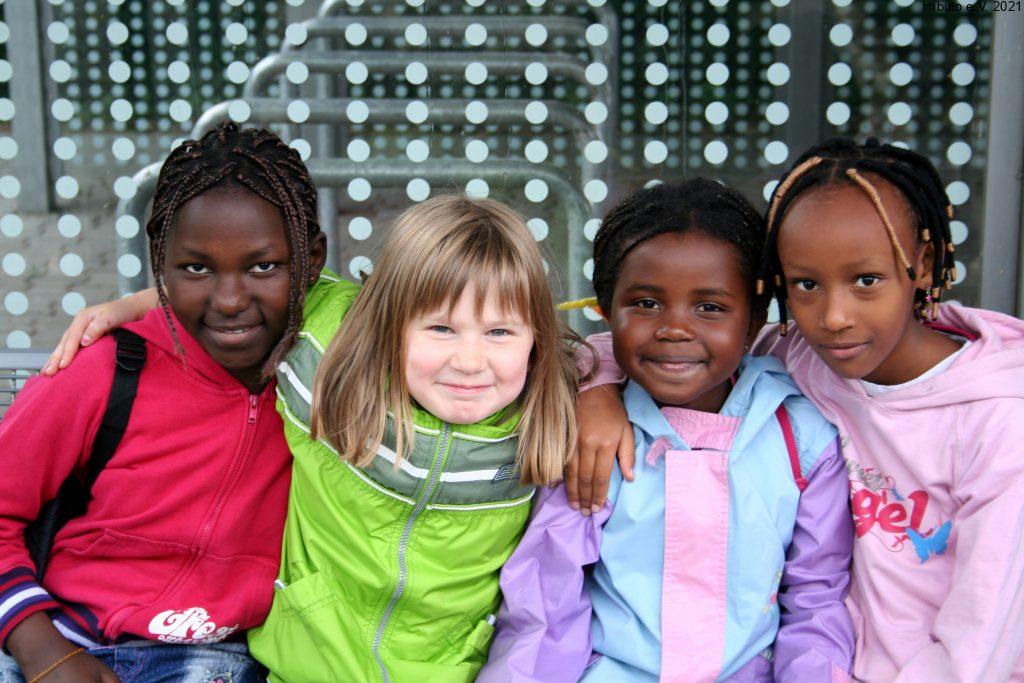
All this means we support the Agenda 2030 with the implementation of the 17 Sustainable Development Goals (SDG). These goals were unanimously adopted in 2015 by the General Assembly of the United Nations. With the Agenda 2030, the dimensions sustainability and peace have been linked at the political level for the first time.
With our work, we especially support the SDGs: Quality Education (4), Gender Equality (5), Decent Work and Economic Growth (8), Reduced Inequalities (10), Peace, Justice and Strong Institutions (16), Partnerships for the Goals (17).
In order to achieve our objectives, we offer…
- political education at local, national and international level, fostering international understanding.
- support for projects that promote a more peaceful future of societies.
- promotion and counselling for groups and individuals who commit to constructively shaping society, to non-violently resolving conflicts and to helping human rights to be recognized.
- promotion under the aspects of equality, justice in research as well as projects in development cooperation that support self-organization in order to create peace alliances on different levels.
In 2012-2013, we evaluated the degree to which we had achieved our purposes:
Auch Bäche beginnen mit einem Tropfen – Wege der Friedensförderung ->> results in german.
Our members
Presently, Imbuto has 33 members. They live in Germany, the Netherlands, Belgium, Guinea-Conakry, Rwanda and Senegal. Many of our members have worked in or were born in countries of the South, in particular the neighboring continent of Africa. Many also have a personal history of flight, e.g. within the Great Lakes region in Central Africa. Some have experienced war and loss of loved ones.
We represent many experiences in different cultural contexts, for instance in Europe and in Africa. We express creativity, solidarity and movement. We shape the future. We are united in our hope for and our shaping of a more peaceful and sustainable future.
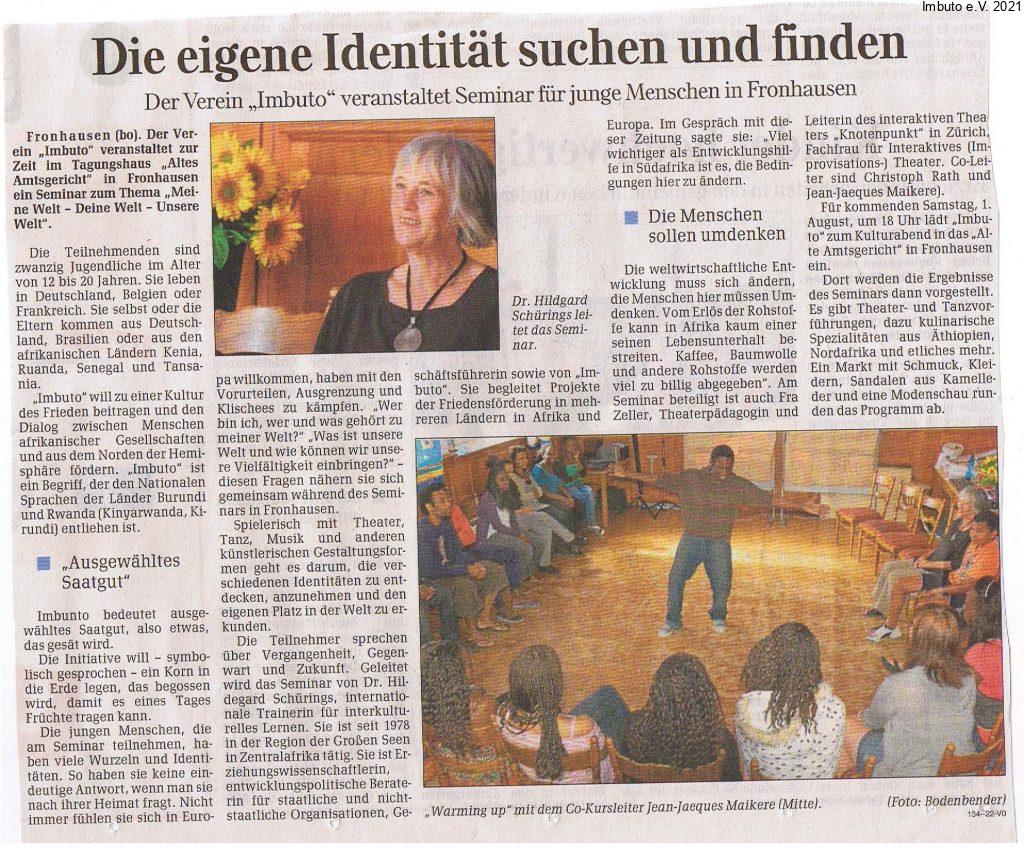
We bring to the table a wide spectrum of professional and institutional experience, ranging from preschool, kindergarten to university, from public service to freelancing, from economics to law, from public relations to film and art, from educational science to vocational training, from peace and conflict research to medicine. We work in large networks.
We speak: German, English, French, Kinyarwanda, Spanish. Due to our personal and work experiences, we possess good knowledge of many African countries, especially in the Great Lakes Region (Burundi, Rwanda, DR Congo), in West Africa (Senegal) and in the Maghreb (Algeria, Morocco, Tunisia). We are united in the conviction that our world needs to become more just and this is what we strive for in our voluntary work.
Our activities
We give voice to those who otherwise remain unheard. We support children, youths and adults from the South and the disadvantaged in the North so that they can stand up for their rights.
We carry out political education work on a regional and international level in order to promote international understanding and social co-existence.
We offer: multicultural workshops, presentations, conferences, studies and information.
Topics: Shaping the future, promoting peace, anti racism, flight and migration, intercultural co-existence, social participation, reconciliation and justice. We document most of our projects and publish our experiences and insights. These publications are accessible on the sites of this Portal and here.
Our audience
We want to address all people who are curious and seek to know more about global contexts: How do people live in other countries and continents? What do they wish for, what hurdles do they have to overcome? Why do people flee their home country, how do they wish to live? What do they experience on their way to a better future?
We want to address educational institutions: Schools, universities, non-school educational organizations, international and national non-governmental organizations, associations, congregations, unions, companies, municipal institutions, clinics and counseling services.
We are happy about every person we can reach with our work.
We cooperate with…
- Many individuals, volunteers, close and distant neighbours
- Civil society and church organizations, state and municipal institutions, individuals on a local, regional and international level.
We have cooperated with many individuals and organizations for months, years, even decades. This cooperation has always been enriching for us, with a lot of shared learning, exchange, laughter and crying.
DANKE an Alle, Thank you so much, Merci beaucoup, Muchas gracias, Murakoze cyane.
Tatjana Anderson (✝ 2018), Eva Anderson-Park, Michel Barnaud, Dan Bar-On (✝2008), Inka Barnett, Lydie-Isabelle Benninghofen-Twibanire, Tristan Benninghofen, Malte Bering, Jean-Louis Bisangwa, Ananie Bizimana, Jean D. Bizimana, Dinah Bora, Jule Bumiller, Delphine Büttner, Tianci Cheng, Pauline Disonn, Arne Erdmann, Brigitte Görg-Kramß, Sebastian Günther, Eschwa Helmand, Monika Hamann, Lula Helms, Friederich Hirler, Muriel Imhof, Divine Ineza, Johanna Janusch, Jingmei Li, Diane Kabanda, Verena Kaden, Alphonsine Kayinamura-Ihunge, Ursula Kiesow, Ute Köcher, Andrea Kornek, Mathias Krams, Luise Lehmann, Farida Malikova, Jean-Jacques Maikéré, Sarah Merdian, Elisabeth Meyer, David Muhirwa, Annika Mülller, Jean-Claude Musoni, Anne-GisèleNimbona, Aline Gislaine Nimbona, Gabriella Nimbona (✝2019), Xavérine Niwemutoni, Veronika Ott, Andrea Pabst, Sang-Min Park, Ingo Prager (✝ 2011), Christoph Mushayija Rath, Silvia Rath, Miriam Richter, Rong Li, Ganisyha Runyinya, Kami Runyinya, Ulrich Schäfer, Xiaohe Shi, Laurence Schneider, Hildegard Schürings, Jona Schürings, Jasmin Scholle, Burkhard Schops, René Sibomana (✝ 23.12.2022), Richard Sibomana, Susanne Steuber, Anne Westerholt, Jo Westerholt, Fra Zeller … August 2023 Many thanks to all who are not listed here!
The international conference “No future without the past” took place in Marburg in 2008. The member of the organizing team invested a great deal of energy in preparation and follow-up: Magnus Adler, Tatjana Anderson (✝), Eva Anderson-Park, Markus Bayer, David Bodensohn, Gunnar Fischer, Aimée Frank, Jana Groth, Sebastian Otto Günther, Toni Hassenmeier, Daina Hues, Sarah Koch, Klaas Kunst, Kai Lipfert, Johannes Melzer, Anne-Gisèle Nimbona, Kaveh Omaraie-Hamedani, Kirsten Orschulok, Veronika Ott, Andrea Pabst, Steffi Pohl, Hildegard Schürings, Jasmin Scholle, Carla Schraml, Marion Vohla, Gudrun Werding.
We also thank everyone who is not listed here: The many children and youths, participants and speakers at
- our workshops and encounters in Germany, Rwanda, Belgium, France, Switzerland, the international symposium 2008 in Marburg,
- our seminars in Rwanda with participants from Rwanda, Burundi, Uganda, Kenya, DR Congo,
- as well as our hosts,
- and all those who effectively supported us from the backlines.
Together, we can keep discovering new worlds.
Thank you for the many shared learning experiences!
Action Jeunesse et Environnement, Sénégal
Academic expierence worldwide Frankfurt am Main
Africa alive Festival Frankfurt
Africa Foundation e.V. Frankfurt
Altes Amtsgericht, Tagungsstätte Fronhausen
Akademisches Auslandsamt der Rheinisch-Westfälischen Technischen Hochschule RWTH, Aachen
Aktion Sühnezeichen, Berlin
Association Hirondelle, Ardèche, France[1]
Buchladen Roter Stern, Marburg
Bundeszentrale für Politische Bildung
Club Voltaire, Frankfurt
Colloquium e. V. Marburg
Deutscher Entwicklungsdienst – DED, 2011 Fusion mit GTZ – Deutsche Gesellschaft für Technische Zusammenarbeit -> GIZ – Deutsche Gesellschaft für Internationale Zusammenarbeit GmbH
Eirene International, Schweiz
Entwicklungspolitisches Netzwerk Hessen
Evangelische Studierendengemeinde – ESG, Aachen
Evangelische Kirchengemeinden Fronhausen und Hassenhausen
Evangelische Freikirchliche Gemeinde Hassenhausen
Freiwilligenagentur Marburg-Biedenkopf
Gedenkstätte Buchenwald
Gemeinde 35112 Fronhausen
Gewerkschaft Erziehung und Wissenschaft – GEW, Hessen
Groupe de Labeaume pour la Paix, la Solidarité et le Développement asbl, Ardèche – France
Haus der Wannseekonferenz Berlin
Inkindi n’Amanzi, Belgien
Initiative pour la Paix dans la Région des Grands Lacs – Genf, Eirene Schweiz
Initiative Pro Afrika e.V.
ISOKO e.V. – Internationale Solidarität und Kommunikation, Bonn
Jüdische Gemeinde Marburg
Katholischer Fonds
Katholische Kirchengemeinde Fronhausen-Lohra
KIF – Kultur in Fronhausen
Landkreis Marburg-Biedenkopf
Landsynagoge Weimar-Roth
Lutherische Pfarrkirche St. Marien Marburg
Misch mit! Miteinander Vielfalt (er)leben, Landkreis Marburg Biedenkopf
Muntu Afrika, Aachen
Philipps-Universität Marburg, Zentrum für Konfliktforschung und
Fachschaft FUK – Friedens- und Konfliktforschung
Psychosozial Verlag Haland & Wirth, Gießen
Stadt Bonn, Amt für Kinder, Jugend und Familie
Stiftung Nord-Süd-Brücken, Berlin
Ubuntu Frankfurt a. M., Träger: Verein Projekt Moses Jugend- und Sozialwerk e.V.
Ziviler Friedensdienst – ZFD- DED, Rwanda
Partner organizations from Burundi: Nicht-Regierungs-Organisationen – NRO:
ABJE – Association burundaise pour le maintien de l’Unité au sein de la Jeunesse
ABREPA – Association burundaise pour la Recherche et l’Etude en Pédagogie Appliquée
APDH – Associations pour la Paix et les Droits de l’Homme
CAJABU – Carrefour des Jeunes Artistes du Burundi
CJABU – Collectif pour la Promotion des Associations des Jeunes
LANOVA – Ligue Africaine pour la non-violence active
Ligue des Jeunes
Partner organizations in Rwanda:
- Ambassade de la République Fédérale de l’Allemagne au Rwanda
- Deutsche Gesellschaft für Technische Zusammenarbeit – GTZ, Rwanda, seit 2011: GIZ – Deutsche Gesellschaft für Internationale Zusammenarbeit
- Association des Etudiants en Psychologie Clinique et pour la Santé Mentale – AEPCSM – Université Nationale du Rwanda – UNR, Faculté de l’Education de l’Université Nationale du Rwanda
- Institut de Recherche et de Dialogue pour la Paix – IRDP, Kigali
- Institut Polytechnique de Byumba, Rwanda, today named: University of Technology and Arts of Byumba – UTAB
- Ligue des Droits de la Personne dans la Région des Grands Lacs – LDGL
- MEMOS Rwanda und DED-Rwanda
- Rwandan Union for Youth Affected by Armed Conflicts – RUYAAC
- Association des Guides du Rwanda
- Association des Etudiants et Elèves Rescapés du Génocide – AERG
- Association Umuseke
- Twitabire Gacaca, Maison des Jeunes, Kimisagara, Kigali
- Service Allemand au Développement – Service civil pour la Paix – DED
Partner organizations of the international symposium 2008:
Participants from thirty universities and institutions in Europe (Belgium, Germany, Switzerland), in Central Africa (Burundi, DR Congo, Rwanda), in the USA, Chile, as well as representatives of civil society:
- Ligue des Droits de la Personne dans la Région des Grands Lacs – LDGL
- League of Batwa in Burundi
- Ibuka – Rwanda
- Members of womens’ groups
- Association des Veuves du Genocide – AVEGA -Agahozo – Rwanda
- European youths, Imbuto e.V.
- Students of clinical psychology from Rwanda
- Civil Peace Service – Ziviler Friedensdient ZFD in Rwanda
- and a special rapporteur of the United Nations in the DR Congo.
Here the resulting publication: Imbuto e.V. et al. No future without the past … in english and french, Marburg 2009.
A great number of projects have been made possible by voluntary work, resources and donations. We have received financial support by many organizations. For this and the constructive collaboration, we would like to extend our warmest thanks.
Aktion Mensch, Bonn
Aktion Selbstbesteuerung, Stuttgart
Auswärtiges Amt, Berlin – Institut für Auslandsbeziehungen IFA – Programm ZIVIK
Brot für die Welt, Berlin
DekaBank, Frankfurt am Main
Deutsche Gesellschaft für Technische Zusammenarbeit – GTZ, seit 2011: Deutsche Gesellschaft für Internationale Zusammenarbeit – GIZ
Engagement global
Europäische Gemeinschaft – Aktionsprogramm Jugend für Europa EU – Jugend für Europa Bonn
Europäische Akademie Nordrhein-Westfalen
EPN – Entwicklungspolitisches Netzwerk Hessen
Evangelischer Entwicklungsdienst – EED, Ausschuss für Bildung und Publizistik (ABP) heute: Brot für die Welt, Berlin
Evangelische Studierendengemeinde -ESG, Aachen
Evangelische Studierendengemeinde -ESG, Bonn
Evangelische Studierendengemeinde -ESG, Siegen
Freiwilligenagentur Marburg-Biedenkopf
Haus am Dom, Frankfurt am Main
Hessisches Ministerium für Wirtschaft, Energie, Verkehr und Wohnen, früher: Hessisches Ministerium für Wirtschaft, Verkehr und Landesentwicklung, Wiesbaden
Hessische Staatskanzlei, Wiesbaden
Katholischer Fonds, München
Landkreis Marburg-Biedenkopf
„Misch mit“ – Bundesprogramm „Demokratie leben“, Landkreis Marburg-Biedenkopf
Office franco-allemand de la Jeunesse, Berlin
Stadt Bonn, Amt für Kinder, Jugend und Familie
Stiftung Umverteilen, Berlin
Volksbank Mittelhessen
Volkshochschule Siegen
Zentrum für Konfliktforschung der Philipps-Universität Marburg mit Finanzierung durch die Volkswagenstiftung Hannover
und Fachschaft FUK – Friedens- und Konfliktforschung Universität Marburg
Since 2000, many individuals have participated in Imbuto projects: So far, we count at least four thousand people from more than thirty countries:
- participants,
- guests at cultural gatherings,
- visitors of presentations and events,
- young volunteers,
- teamers and speakers.
We focus on including everyone and thus enable mutual learning processes. Due to the voluntary work of many individuals and the support by many organizations, we have been able to implement our projects.
How can you support us?
There are many ways to support us: By participating, acting in solidarity, contributing your own competencies, and by donating! Check out this page.
Awards
Our favorite awards consist of the feedback we have been receiving since 2000. We receive a lot of feedback from young individuals who feel empowered by our work, who have developed new life perspectives and who face the future with great hope!

2003
Good practice award for “Initiative – Intercultural dialogue – Inclusion”. Awarded by the EU Commission, Youth for Europe, Brussels for the project “Wo liegt eigentlich Afrika? Politik – Interkulturelle Beziehungen – Rassismus – Identitäten – Menschenrechte”.
The project was carried out in August 2002 in Fronhausen, in collaboration with Inkindi, Belgium. Six projects from thirty countries have received the award, including Imbuto e.V.

2006
Our project (in collaboration with MEMOS and AEPCSM – Rwanda) was awarded by the ifa Institute as a good practice project: Voneinanderlernen – nach dem Holocaust in Europa – nach dem Genozid in Ruanda – Ein Leben nach dem Tod ist möglich! dt, en, fr: Learning from Experiences – after the Shoah in Europe – after Genocide in Rwanda
-> Award, see: Celebration Book of five years of ZIVIK – ifa Institute “Frieden und Zivilgesellschaft – Fünf Jahre Förderprogramm Zivile Konfliktbearbeitung“ Wochenschau Verlag, Schwalbach 2006.
ZIVIK is financed by the German Ministry of Foreign Affairs.
This project represents a continuation of the youth exchange that took place 2003 in Rwanda: Für Frieden und Versöhnung.
Both projects are part of our exchange programs for the promotion of peace and reconciliation in the Great Lakes Region in Central Africa. They took place in Rwanda and Germany. You find additional information here.
Christoph’s experiences… in our evaluation study „Auch Bäche beginnen mit einem Tropfen – Wege der Friedensförderung“
In the summer of 2000, Imbuto carried out its first summer workshop titled “Intercultural encounters” in Fronhausen. At that time, I am fifteen years old and one of the younger participants. I am not quite sure what to expect. All I know is that other youths will be there, some of them with Rwandan roots. The week long workshop offers discussions, group games and excursions, with topics ranging from cultural identity and intercultural exchange to racism.
I cannot deny that I was very curious about this workshop, having had very little contact to other families with Rwandan roots. The participants of this workshop will later come to close this particular gap in my contact list. When I stand in front of the former district court in Fronhausen for the first time, I do not know it yet, but Imbuto will lead me to many friendships and adventures. We will discuss and argue a lot. We will have the time of our lives. Together, we will travel to Rwanda and try to understand where we come from. There will be moments of infinite sadness. But, what else should we expect from friendships and adventures?
As we meet for the first time at this Imbuto workshop, it is not just different individuals from different cultures finding each other. It is also individuals from different age groups coming together. Because Imbuto has invited parents, siblings and friends, the participants are accompanied by sons, little sisters and old friends, who in turn become participants themselves.
For me, Imbuto represents at that moment in time a platform to formulate my first political and cultural thoughts into words. All the while playing basketball in the backyard or falling in love with older girls. It is just those older girls, let us call them Gisèle or Delphine, who prompt me to try and say intelligent things like “interculturality in times of global networks”. Without much success, I have to admit. Yet, in the course of time, we grow to be a family. An intimate fellowship whose greeting and farewell ceremonies remind me of West African traditions. Whenever you meet someone after two or three years, your heart opens up. In the meantime, some of this fellowship have graduated or started working, some have become parents or live in Ireland. Perhaps one or the other will notice how mature and grown up I too have become?
“My God, Stéphane, last time you were two heads shorter than me. Now it is the other way around.” And when the time comes to say farewell, we will again be a little sad for the next one or two years that pass until our next reunion. The many pictures that are taken during the workshops allow us to create a collage that documents our growing up and growing older. We who used to be the younger ones are now the older ones. (If I may indulge in a little vanity of my own, I imagine having noticed some of the younger ones glancing at us older ones with dreamy looks too…) We have grown up. It has become easier for us to get up early, while it has become harder for us to score baskets in the backyard.
In 2011, Ingo Prager passes away. At the end of 2011, the former district court in Fronhausen closes its doors. Thus a chapter comes to a close, just as unexpectedly as me standing in front of its doors in 2000. Since its beginnings, the former district court is part of Imbuto. And it seems that Imbuto must change too. Without having noticed it, Imbuto has grown older.
Christoph Mushayija Rath, Januar 2013
In memory
We have lost a loved friend, Ingo Prager. Ingo, in 18 years, you have accompanied us on many paths and have always welcomed us in the former district court in Fronhausen, always cared for us with delicious meals and affection. Thank you Ingo for all the conversations, for your solidarity with those who needed it. You were part of our family.
Nous avons perdu un grand ami Ingo Prager. Ingo, durant 18 années tu nous a accompagné sur nos chemins. L’accueil par toi au « Amtsgericht » de Fronhausen a toujours été très aimable. Tu nous as encadré par des délicieux repas et l’affection donnée à tous. Ingo, merci pour les nombreuses et chaleureuses conversations, et pour ta solidarité avec les moins munis.
Tu étais un membre de notre famille. Adieu!
For all Imbutos – Pour tous les Imbuto January – Janvier 2011
Contact: imbuto(a)imbuto.net

